Bizarre things Thais do
Like people from other countries around the world, Thais have some unique characteristics that are reflections of our culture and upbringing.
If you have visited Thailand or spent enough time with Thai people, you might have noticed some, if not all, of these 12 things Thais do that the world probably wouldn’t understand.
1. Smiling when you don’t understand anything
In contrast to the universal meaning of a smile, nodding and smiling in Thailand might not refer to a simple acknowledgement – but rather the opposite.
Let’s say a tourist is asking a random Thai person for directions to the nearest Starbucks, chances are, they might respond by smiling and nodding slowly. You’d assume they understood the question, right? Well, probably not.
This is something many Thais, including me, often find ourselves doing when we don’t understand or even agree with something.
This gesture isn’t limited to when we can’t converse in foreign languages, but also in other scenarios like at university lectures or during workplace meetings.
2. The phrase “How are you?” is too basic
Saying “How are you?” or Sawasdee (Hi in Thai) is basically not-existent in the true-blue Thai dictionary, especially for older generations like my grandparents. If we want to greet someone or ask about their day, we’re likely to ask them if they’ve eaten, or about where they’ve been.

Image credit: Makeameme
But the most noticeable way older folks “greet” their younger relatives, especially when they haven’t met for quite some time, is calling out their appearance like “You’re so fat.” or “Why are you so skinny like a stick?”. Facepalm.
This might seem weird, nosy, or even straight-out rude by modern standards, but let’s take a closer look. It appears that most of these greetings are associated with eating habits, which is something older Thai folks use to determine whether the person is healthy or not.
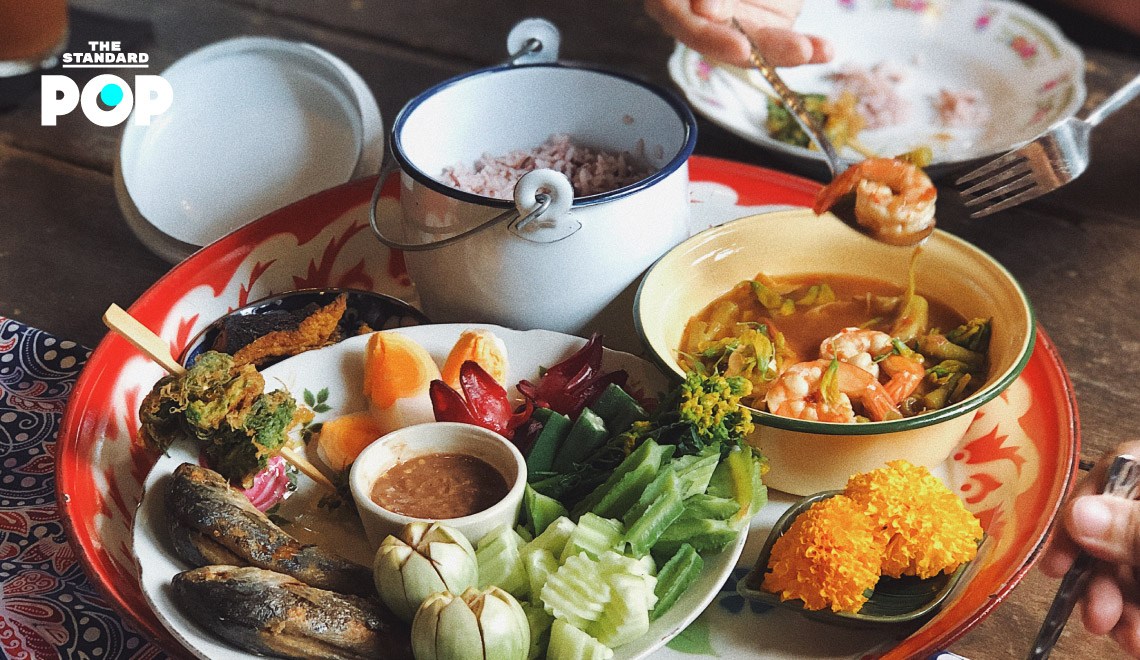
Image credit: The Standard
Another notable greeting related to food is to say Gin-Khao (let’s eat) to passersby or neighbours. And no, they don’t mean that literally, so don’t make a beeline and join them for a meal without asking because that’s considered rude – we know, it’s quite confusing.
3. Never asking questions in class or meetings
It is almost impossible to get Thai students or employees to ask questions, let alone present their views or opinions, in a lecture room or a meeting.
However, this doesn’t mean we’re short of ideas or stupid. I’d say this timid nature is a result of our upbringing. Most Thai children were not encouraged to speak our minds, whether with family or at school, because doing so might come across being disobedient.
What’s worse? Many kids are ridiculed, or even punished, by parents or teachers when they say something wrong. This is why many of us chose to stay quiet most of the time.
4. “Nothing” is the most popular answer for any question
There must be something in our blood that makes us subconsciously in denial and afraid of doing something wrong. If you ask Thais simple questions like “What are you doing?” or “Where have you been?”, the answer will likely be “nothing,” then followed by the real answer.
So when you’re conversing with your Thai buddies and are curious whether they’re busy, always look out for the second answer, not the first one.
5. Markets are our favourite hang out spot
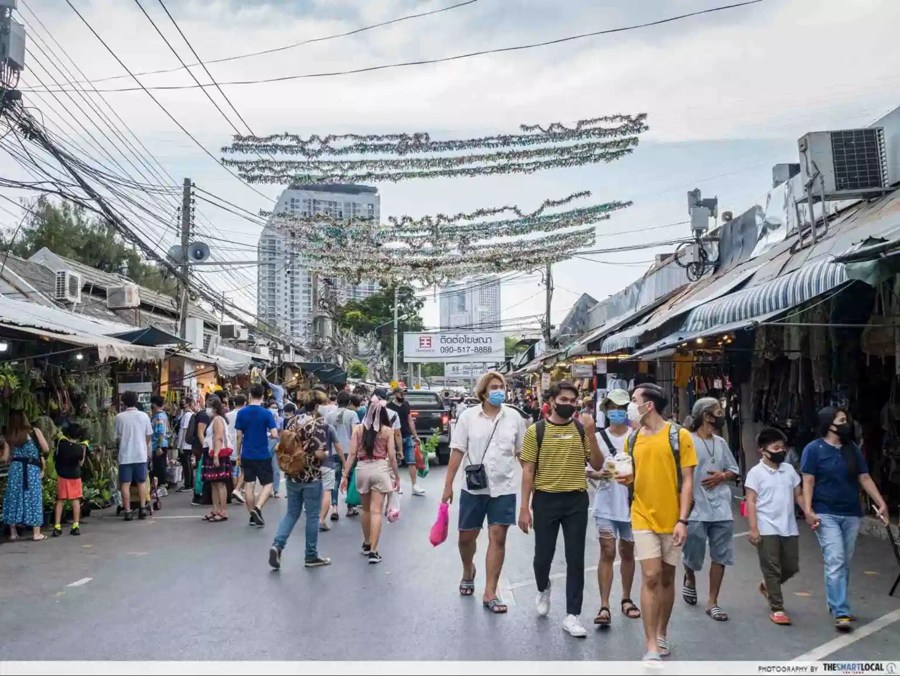
Move aside, shopping malls and cafes. Markets can be found in every province of Thailand and we love to go there whenever we get the chance. That’s why we have all sorts of markets – from fresh markets selling groceries in the morning to night markets in the evening that’s perfect for shopping.
Hanging out at the market might sound weird to foreigners, but market culture likely originated during the time Thailand didn’t have many malls and other public spaces like parks to visit to hang out with friends.
And by the time we got them, our markets had already evolved to another level selling more than just goods and services, making this a hotspot for locals till today.
6. Travelling to ‘sacred’ places to get lottery numbers
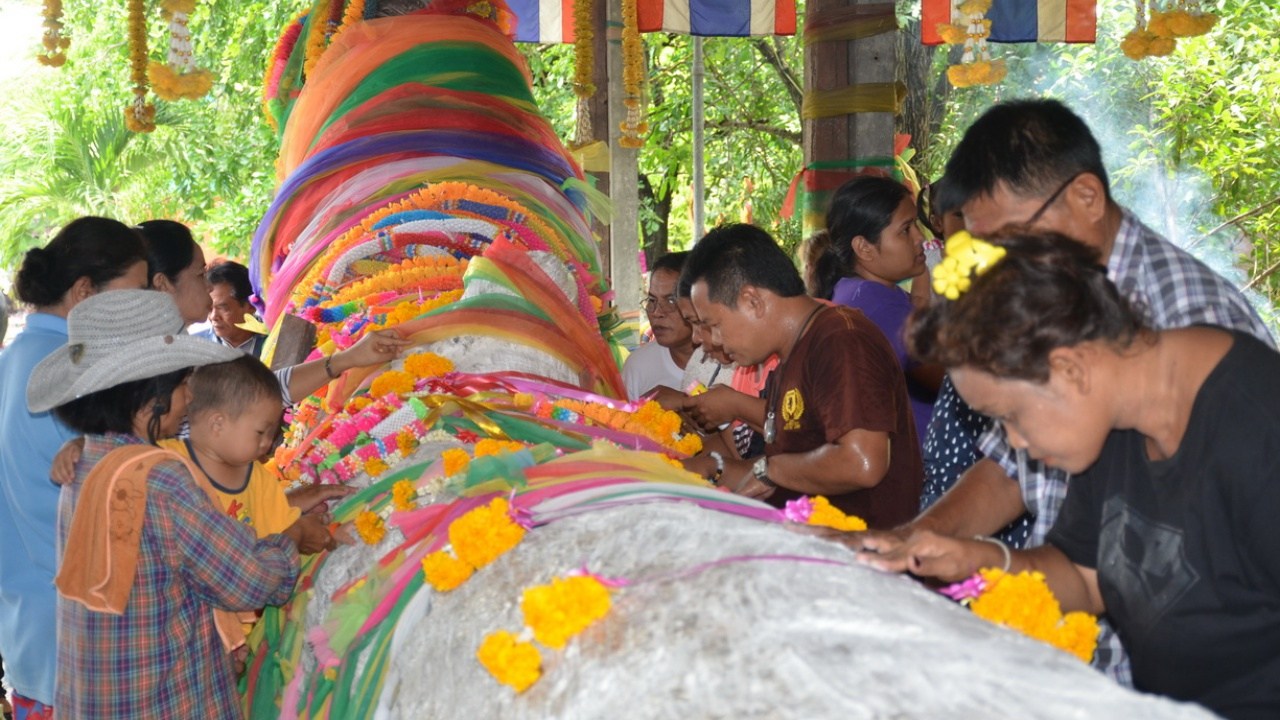
Image credit: Thairath
While Thai adults love to nag their teens for staying out late or having an overnight trip with friends, they’re willing to travel hundred of miles to “sacred” places like shrines or temples to ask for numbers so they can win the lottery – yep, Thais’ love for lucky numbers is paramount.
Beside making wishes with burning incense sticks, another common practice I’ve seen my folks doing is to swarm supposedly “haunted” objects such as logs. Then, they would bring out white baby powder and scrub the object, believing that those who could channel the spirits will get to see lucky numbers.
7. Following the special “Thai time”
If you have a meeting with a Thai friend at 9am, you can expect them to show up at 9.30am or even later if that appointment is not for work or something important.
While this is far from ideal, it is also understandable when you take a look at our public transportation and traffic. It is almost impossible for us to calculate the exact time needed to travel, and it has been like this since forever. At this point, I think most of us have just given up.
From my own experience, I used to spend about 3 hours on a van from university to the nearest mall that is only 10km away, so let that seep in.
8. Spirit houses at all houses
 Image credit: Baania
Image credit: Baania
Have you ever seen a miniature house situated in front of our homes and thought it was so charitable of us to provide shelters for birds? Well, those are actually for spirits.
Almost every house in Thailand has a spirit or ghost house for our ancestors who have passed on and also for “house ghosts”, so they can protect us from wandering spirits – it’s like a security house, but for our spiritual guards.
Also read:
9. Asking questions to double confirm
When Thai people want to know something or need directions to get somewhere, it’s always reassuring for us to ask people nearby rather than reading signboards. On the other hand, we would rather bite our tongue than ask questions in what seems to be a perfect time to do so such as in class or meeting.
I’m also one of these people – I always have the urge to ask the bus driver if they’re really heading to my destination even though it’s written so on the bus stop’s timetable. This also applies to when we travel overseas. It’s better to learn about the information behind a place from another human than reading about it. I guess it has a lot to do with our importance for the human touch.
10. Sabai sabai to mai pen rai: being ultra easy-going
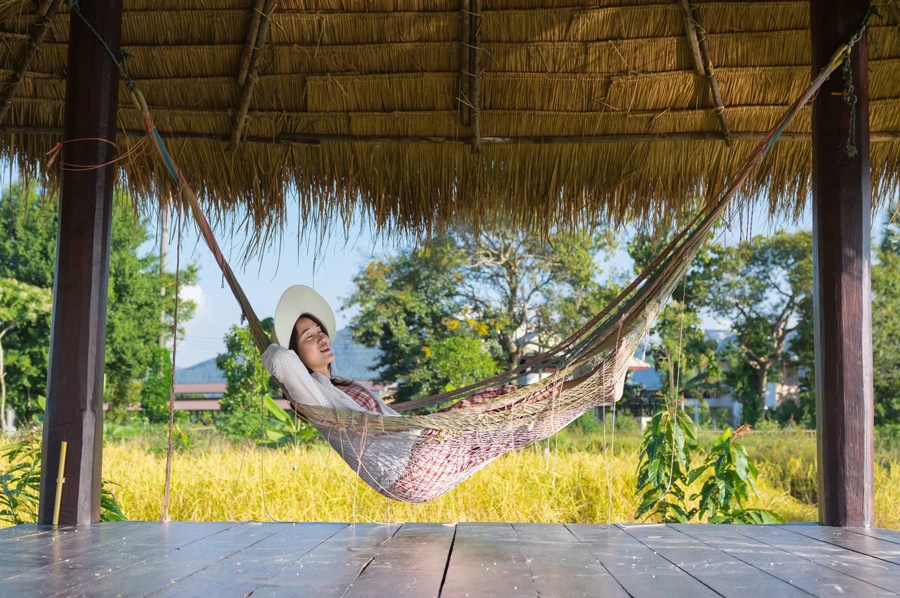
Image credit: ทุ่งนากาแฟ
Most Thais don’t mind just going with the flow and don’t get angry very easily. That’s why foreigners are often taught Thai phrases such as mai pen rai (it’s alright) and sabai sabai (all is good).
Just like Thai time, this easy-going spirit is shaped by our everyday life. If we don’t choose to live life as we know it and adapt this mai pen rai mentality, we’ll end up biting our tongue to death waiting for late buses. Call it a coping mechanism if you will.
11. Using plastic bags for everything
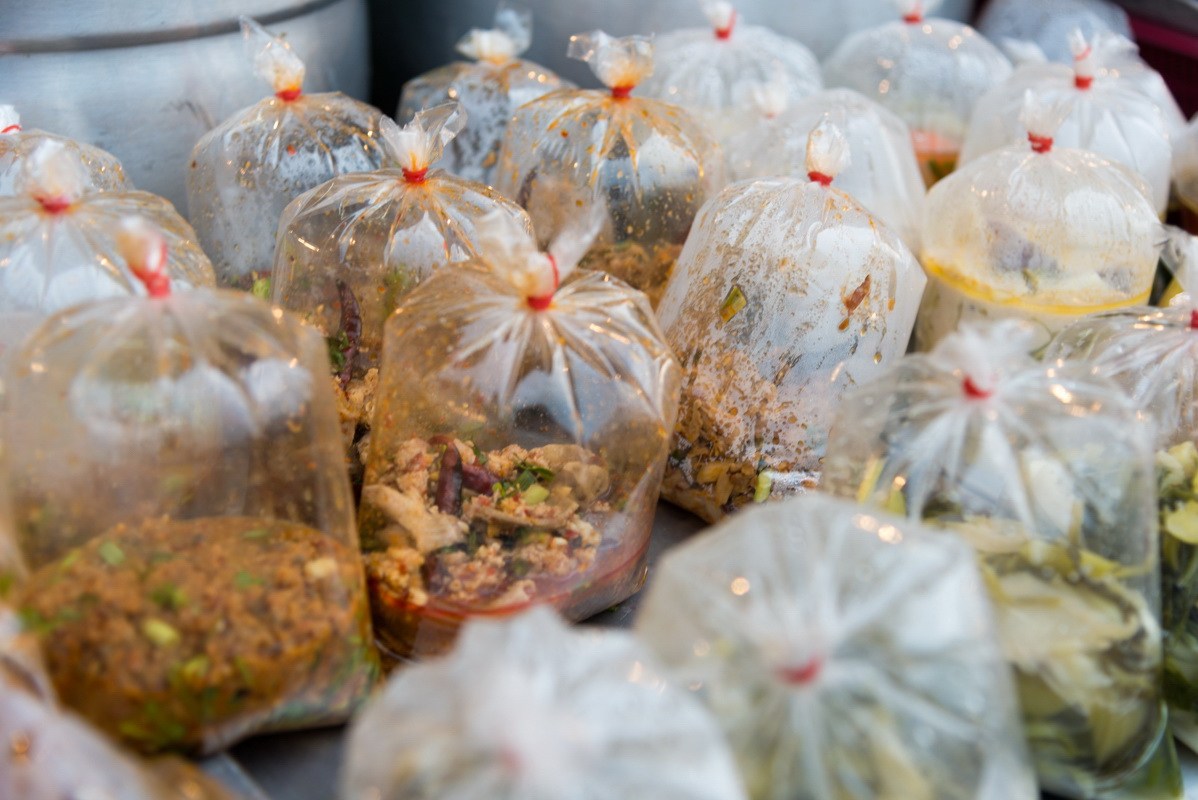
Image credit: ThaiPublica
Thailand is trying to catch up green initiatives by launching countless campaigns to reduce plastic use in stores. However, it’s no denying that we still heavily rely on this invention.
We literally put everything in plastic bags from meatballs to desserts, and then put these bags in another big plastic bag and carry them home.
To this day, I shamelessly confess that I have more trust in curry in a plastic bag tightened with a rubber band than a tupperware. There was even a funny Thai commercial back in 2017 based on this “invention” alone.
12. Being overly friendly and welcoming to strangers
This might not be bizarre or even surprising, but a lot of Thais, especially older folks, have been known for being super generous and friendly. By just smiling at them, they will spend hours hanging with you and might even invite you to their house for food although you might have just met.
When I was younger, I remember a random man crashing his motorcycle in front of our house, prompting my grandmother to stop cooking and rush to his rescue. Soon after, most of our neighbours were also there to see if they could help, abandoning everything they had been doing. It was an amazing thing to see.
This might not be the case in many other cultures, where such occasions could be seen as an inconvenience and where strangers often keep to themselves.
Do you know any other ‘Thai’ traits?
If you know or have experienced any other Thai traits besides these on the list, don’t forget to let us know in the comments!
Featured images adapted from: Dawn Kohler, CH3 Thailand
Enjoying The Smart Local Thailand? Follow us on Facebook and Instagram for more stories like this

Drop us your email so you won't miss the latest news.






